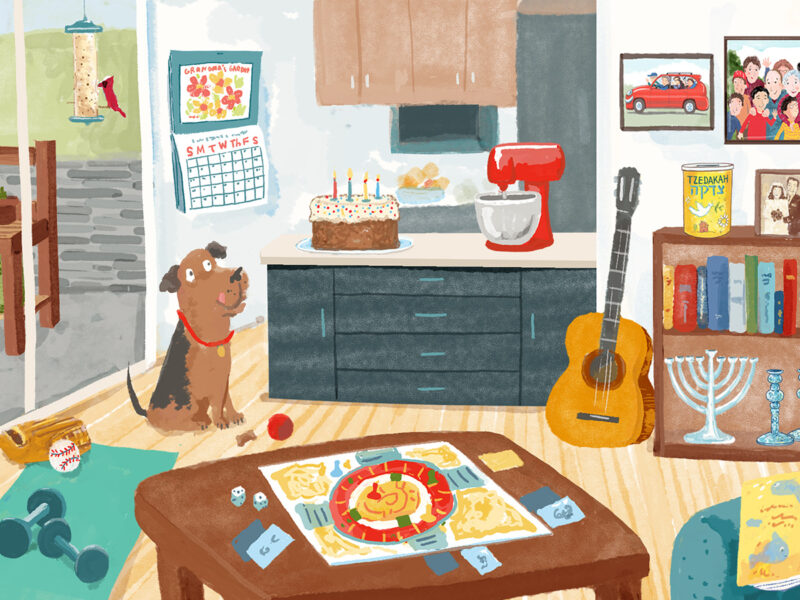Leonard Kaufman, 87, has plenty to look back on. Born in Portland in 1926, he remembers Depression-era hobo camps, World War II scrap drives and swimming lessons with Mickey Hirschberg at the Jewish Community Center on Southwest 13th Avenue. He reflects on his early Portland ancestors. His grandfather, merchant Isaac Kaufman, arrived in 1858. (The first recorded Jewish presence was in 1849). Most of all, he remembers his father’s cigar shop and restaurant, a fixture in downtown Portland for more than 20 years.
“My dad saw Jewish clubs around the country, but there was nothing like that downtown,” Leonard says. While many Jewish men belonged to B’nai Brith, Leonard Sr. knew they would enjoy playing cards and doing business in a place “without the veneer of an organized association.” At that time, the City Club, Concordia Club and other downtown clubs did not admit Jews. Leonard Kaufman Sr. opened his licensed card room on Oak Street around the corner from the Benson Hotel in 1930. As predicted, success started on day one.
“A lunch counter with 21 stools was on the right; the cigar counter was on the left,” Leonard says. “The whole wall was a humidor. They’d climb up on ladders to get the cigars down. In back, the card room had eight tables.”The chef worked from the basement kitchen turning out specials like Arthur Markewitz’s favorite: Leonard’s Home Cured Corned Beef on Mosler’s Rye (Mosler’s, of course, referring to Portland’s legendary Jewish bakery). During non-Prohibition years, liquor came in bottles they called packaged goods.
Women rarely entered the restaurant. “The only one I remember going into the backroom was Dr. Ruth Barnett, the famous abortionist,” Leonard says. “She came with Hazel Parker, the wife of J.J. Parker, who owned all the theaters.” Leonard Kaufman Sr. was a big man who smoked 28 cigars a day. “He had a routine,” Leonard says. “First thing, the chef made him eat whatever he was bringing up. Then he’d go across the street for a shave and manicure, meet Markie Mayor and Al Winters at the Benson, and eat again. When he got back, he’d start the rummy game with Harry the Horse, who worked for him.
“Noon was the most interesting time,” Leonard says. “They cut out the cards, clothed the tables and men ate lunch, schmoozed and hollered. After 1 p.m., the card room was operating. They played Pagani and rummy, but a lot of this was schmoozing. The noise is that backroom was loud.” Leonard Kaufman Sr. made quite an impression according to Oregonian articles. One March 28, 1937, story about a WWI division reunion singled out his service: “Some of Portland’s best known citizens and businessmen were members of that unit, and its first cook was Leonard Kaufman. Every living member of the company will testify that he was the poorest cook in the division, if not in the army. He was once confined to quarters … for throwing his cigar into the soup.”
When Leonard Kaufman Sr. died in 1950 at age 55 after a long illness, the Oregonian praised his military service; Masons, Shriners and Congregation Beth Israel affiliation; and his philanthropy. He once started a fund for a local boxer’s medical care, and Leonard remembers him closing the restaurant and donating his cook and dishwasher to B’nai Brith Camp each year.
“Leonard was quite a character,” says Howard Cohn, who lives in Lake Oswego with his wife, Barbara. “I remember going into the restaurant and telling my dad it was time to come home. The Zells played cards there, everyone did, for quarters, and of course, during the Depression that was a lot of money. Pagani was a great game with eight decks of cards. I wish they played that game today.”




